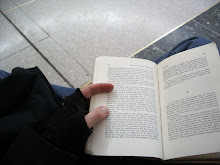Morality and Economic Prosperity
From the Afterword by Professor Larzer Ziff, following Theodore Dreiser's The Financier:
'In the January, 1901, issue of World's Work, the Reverend William Lawrence, Episcopal Bishop of Massachusetts, built a moral bridge over the deep rift that had opened in American life. On the one hand, because the country was prospering as business prospered, the businessman who sought his self-interest was behaving acceptably according to current social mores. On the other hand, his pursuit of self-interest went against principles that had been firmly implanted in the national consciousness prior to the industrial boom of the late nineteenth century and that still dominated ethical thought (or at least the public expression of it) of most Americans. As Bishop Lawrence said at the outset of his article: "There is a certain distrust on the part of our people as to the effect of material prosperity on their morality. We shrink with some foreboding at the great increase in riches, and question whether in the long run material prosperity does not tend toward disintegration of character."
'The bridge that Bishop Lawrence built rested on two piers. The first was the assertion that man's natural task is to exploit the resources of nature: "This is his play, his exercise, his divine mission." The second was that since God's universe is harmonious, "in the long run, it is only to the man of morality that wealth comes." Written large across the span that rested firmly on these piers was the message "Godliness is in league with riches."'
I'm eager to learn your thoughts on Bishop Lawrence's assertion.


0 Comments:
Post a Comment
<< Home